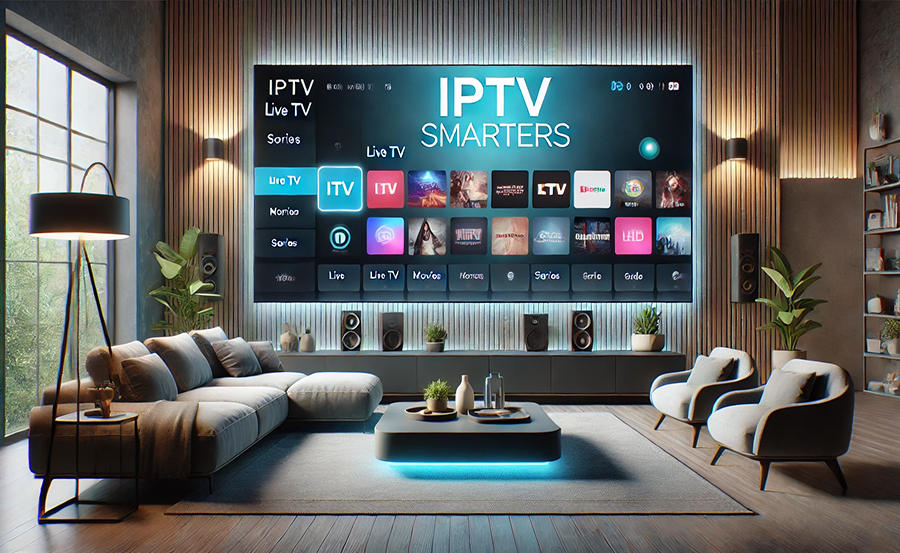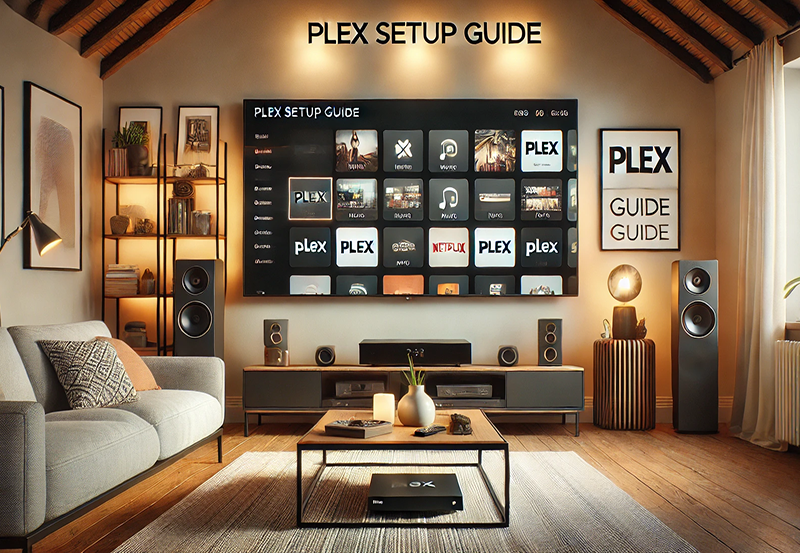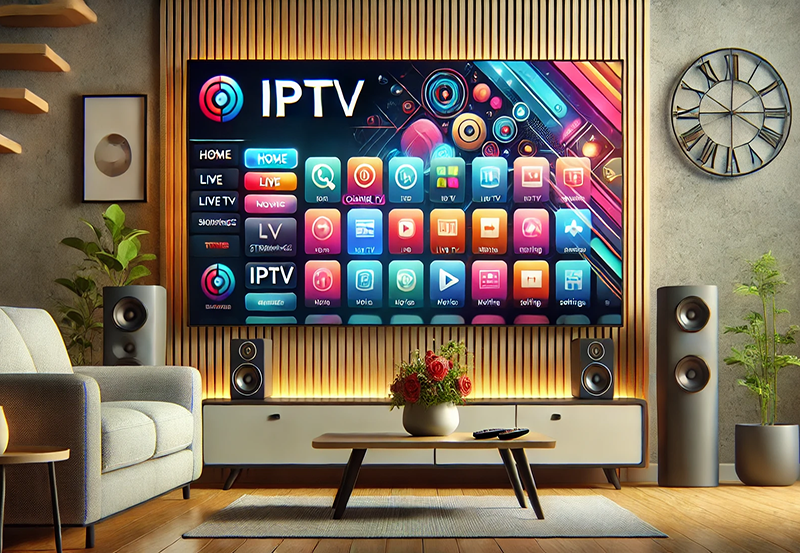Welcome! You’re likely here because you’ve heard about IPTV Smarter and want to understand how it stacks up against traditional cable TV. With technology shaping how we consume content, this is the perfect time to consider options that suit your viewing habits and lifestyle preferences. Let’s navigate this exciting world together, exploring the differences, advantages, and considerations of IPTV compared to the cable services that have been a staple in many households for decades.
Understanding IPTV and How It Works
IPTV, or Internet Protocol Television, has revolutionized the way people access television content. Unlike traditional systems that transmit signals through satellite or cable, IPTV uses the internet to deliver programming to viewers. This distinction is critical, highlighting why many are making the switch.
IPTV providers offer a broad range of content, from live broadcasts to on-demand shows and movies. What’s more, this content delivery method isn’t reliant on physical infrastructure like cables and satellites, making it versatile. If you’ve ever wondered how IPTV can seamlessly stream high-definition content, it’s all down to encoding and video compression technologies working in the background.
Expert Advice:
Get access to premium TV shows and sports with Affordable IPTV services designed for your needs.
Key Features of IPTV
IPTV is not just about internet streaming. Its unique features provide an experience tailored to modern needs:
- VOD (Video on Demand) services for a vast movie library.
- Time-shifted media, allowing you to pause, rewind, or fast-forward live TV shows.
- Interactive TV that lets users interact with the content via a user-friendly interface.
The rich feature set of IPTV is designed to provide an unparalleled viewing experience, offering flexibility that was once simply a dream.
The Technology Behind IPTV
IPTV relies on a sequence of advanced technologies to broadcast its wide range of content. At the core, there’s content delivery networks (CDNs), which stash content closer to users for faster access. Moreover, transcoding technology is used to adjust the quality of the content delivered, ensuring smooth playback without buffering.
One might think this complexity affects user operations, but that’s not the case. From the user perspective, using IPTV services is typically straightforward, with intuitive interfaces offered by IPTV providers that make navigation as simple as possible.
Traditional Cable TV: The Old Reliable
Despite the growing popularity of IPTV, traditional cable TV holds its ground, revered for its reliability and comprehensive channel packages. Consistently delivering crisp images and sound, it minimizes internet dependence, which can be a crucial factor in areas with unstable connectivity.
What Keeps Cable TV Relevant?
Even in a transforming landscape, traditional cable TV enjoys wide usage due to several reasons. First, it offers a predictable service with little-to-no signal disruptions due to weather, unlike satellite setups. Add to that a plethora of local channels and convenient bundled packages including internet services.
Another distinctive advantage is the ease of access to regional and sports channels, appealing to enthusiasts unwilling to miss live events. Cable companies frequently offer promotional deals, enticing new customers while rewarding loyalty—making it a competitive option among the best IPTV deals.
Limitations of Cable TV
Cable TV, while reliable, isn’t without its drawbacks. Users often deal with lengthy contracts, potential installation fees, and sometimes, limited flexibility in choosing channels. For tech-savvy viewers desiring on-the-go streaming, the constraints sometimes seem notable.
Moreover, with the global push for digital transformation, the lack of interactive or customizable viewing experiences can feel restricting to those who grew up in the digital age.
Comparing Costs: IPTV vs. Cable TV
One of the most significant considerations in choosing a television service is cost. Both IPTV and cable TV come with their price tags, and each has its merits.
Understanding IPTV Pricing
IPTV offers a variety of pricing models. Some providers have subscription-based plans, while others offer pay-per-view content. This flexibility can often lead to substantial savings for viewers, particularly those who prioritize choice over bundled packages.
Many IPTV providers entice users with the promise of no hidden charges, and because these services are internet-based, you may already have the main infrastructure needed, potentially cutting costs significantly.
Cable TV Pricing Structures
Cable TV pricing can, unfortunately, be more opaque. Typically offering promotional rates that soar after the introductory period, these deals may sometimes lead to financial uncertainty. Also, add-ons can elevate costs significantly, from additional channel packs to DVR service fees, which quickly accumulate.
Long-Term Cost Implications
Consider the long-term value. While upfront, cable might appear cost-effective with bundled services; over time, as technology evolves, IPTV often proves to be the sustainable choice, thanks to its adaptability and scalable plans. Users should evaluate their viewing habits and needs to understand potential savings or additional expenses.
User Experience: Which Provides More Satisfaction?
User experience is crucial when selecting a content service, impacting customer satisfaction and retention. Both IPTV and cable TV infrastructures have unique elements contributing to or detracting from user satisfaction levels.
Interactivity and Customization with IPTV
Customization is a key selling point for IPTV. Offering a comprehensive interface, viewers have direct control over what they want to watch and when. It’s all about tailoring the viewing journey to suit personal tastes.
From custom playlists to an array of viewing modes, IPTV empowers users with an experience once considered futuristic. Furthermore, customer service is readily accessible with many providers, smoothing any bumps along the road.
Cable TV’s Proven Simplicity
While IPTV captivates tech lovers, cable TV maintains appeal through simplicity. It’s plug-and-play nature, and straightforward channel lineup appeals to those less interested in meddling with technology. For viewers looking for a no-frills solution, this traditional system still delivers gratifying content access.
The Role of Network Infrastructure
An often overlooked yet critical aspect to consider is the underlying network infrastructure needed for IPTV and cable TV to function optimally. Each has its prerequisites.
IPTV Infrastructure Needs
For IPTV, internet speed is king. A robust, stable internet connection is essential to enjoy quality streams without interruptions. For high-definition content, a fast broadband connection is necessary. This requirement makes IPTV more suitable in areas with advanced telecommunications infrastructure.
Additionally, a compatible device is needed, be it a smart TV, a dedicated IPTV box, or even certain mobile devices, making it slightly more technical for some users to initiate service.
Cable TV’s Hardware Dependence
Cable TV installation often involves more hardware, from set-top boxes to requisite cables. The benefit, of course, is the lack of internet dependency, but you’ll still be tied to the provider’s network layout.
Interestingly, once installed, maintenance is minimal, and many cable providers offer professional installation services, ensuring everything is set up correctly with minimal user input.
Navigating the Transition
Transitioning from one technology to another can trigger both excitement and apprehension, especially if you’ve used the old system for years. Let’s unmuddy the waters and explore steps to ease this change.
Switching from Cable TV to IPTV
If you’ve opted to transition from cable to IPTV, it’s crucial to consider your internet capacity. Ensuring your network’s capability to handle high-demand streaming content is step one. Shopping around for the best IPTV deals is also pivotal; many providers offer trials or month-to-month arrangements to ease this switch.
Next, familiarize yourself with using IPTV technology. Initially, it may seem daunting, but most providers deliver user manuals or have online resources to help guide new users.
Considering the Reverse Switch
For some, the reverse may happen—moving back to cable. This move might be due to IPTV service coverage issues or specific content unavailability. Once confirmed this is the best course, contact potential cable providers, comparing channel packages and installation services.
Assess the long-term costs involved and clearly understand contract terms before committing. This decision should be made with future flexibility in mind.
A Vision of the Future: IPTV and Cable TV
As we peer into the future, the lines between IPTV and cable continue to blur. With advancements in internet technologies and telecommunications, the potential for both services to cater to diverse viewing habits grows.
Perhaps IPTV will continue to innovate, adapting to consumer needs faster than ever before. Whether it’s through further content personalization or immersive viewing options like virtual reality, IPTV providers seem poised to unlock the ultimate IPTV experience.
The Road Ahead for Cable TV
For cable, the future lies in hybrid models, integrating internet-based features while sustaining its core offerings. Innovations could lead to novel service bundles that offer the best of both worlds, with cable companies investing in IPTV technologies themselves.
Ultimately, user demand will drive evolution, and staying informed ensures consumers consistently make the best choices for their unique needs.
The FAQs: All You Need to Know

What is the main difference between IPTV and cable TV?
IPTV leverages the internet, offering flexibility and customization, while cable TV utilizes traditional wiring, valued for its reliability and straightforward approach.
How does the cost of IPTV compare to that of cable TV?
IPTV often presents a more flexible cost structure with potential savings through selective content access, unlike cable TV, which may incur high long-term expenditures due to additional fees.
Do I need a fast internet connection for IPTV?
Yes, a fast and stable internet connection is essential to stream high-quality content on IPTV without interruptions.
Can I get the same channels on IPTV as on cable TV?
Generally, yes. However, content availability might vary across regions and providers, making it wise to check channel offerings when selecting an IPTV service.
Is IPTV technology legal?
IPTV technology itself is legal, but it’s crucial to select legitimate providers that have acquired appropriate licenses to stream content.
Which option is better for local channel access?
Cable TV often holds an advantage in providing access to local channels, which can be a deciding factor in choosing between IPTV and cable.
So, after this deep dive into yet to [be] defined territory, we find ourselves well-equipped for informed decisions. Our paths are laid with options—rich in opportunities to select a television service tailored uniquely to our lives. Let this be your guide in navigating these choices, always inviting you to explore the future of how we watch tv.
Why Your M3U Links Aren’t Working on VLC and How to Fix It





